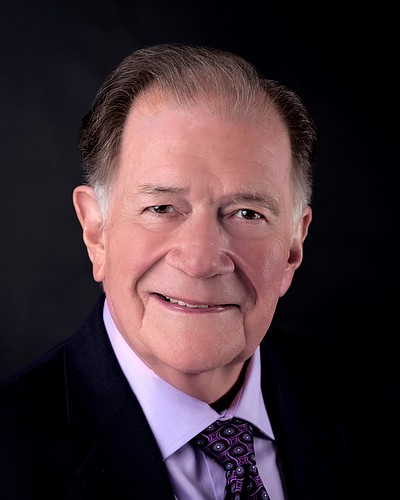- November 24, 2024
-
-
Loading

Loading

When Edward Alley was getting his start as an opera conductor, he asked his mentor a question that garnered an unforgettable answer.
“What do you do when you’re conducting, and in the middle of a performance one of the singers jumps three bars or comes in late?” Alley asked the man. “He looked at me and said, ‘My boy, you do something.’”
Listen and respond — that’s the only solution. It’s the same with interviewing, which Alley learned after his first season as the host of Sarasota Institute of Lifetime Learning’s Music Mondays lecture series last year.
Alley, who was previously a co-producer of the series, assumed the post after the death of the previous host, his wife, June LeBell. She happened to also be the first female announcer on a major commercial classical music radio station. Big shoes to fill.
But, as he says, Alley learned from the best. He’s continued LeBell’s tactic of moderating musical conversations (now the series tagline) rather than lectures. His guests range from longtime Broadway stars to emerging young artists, and regardless of their background, his approach to every interview is the same.
“I adopted this from June — I have a paper in front of me with the artist’s name and mine — in case I forget it — and the list of selections they’re going to play with the approximate length,” he says. “And then we just start.”
Alley doesn’t have a list of prepared questions jotted down because he wants to go where the conversation takes him. LeBell had the ability to connect with anyone, he says, and she changed the dynamic from a formal interview to a cozy conversation between two friends. He aims to do the same.
LeBell’s warmth lives on in every discussion, but it’s the dedicated Music Mondays audience who help Alley make her proud through the in-depth questions asked during every crowd Q&A session.
“The artists are amazed,” he says. “They don’t expect it from a retirement and resort-type community … it’s certainly a direct result of June’s personality, the feeling of camaraderie that exists. It’s one big family. They speak to the artists like they’re friends. It’s very disarming for the artist because they don’t believe that an audience of [800] or 900 people can be so congenial.”
That’s exactly what makes the program special, Alley adds. What started as a music appreciation lecture series in 2003 as an alternative to SILL’s Global Issues lecture series (or rather an addition for people with other interests), has become a discussion — often followed by a performance — that leaves audiences entertained and engaged.
“It’s subversive education,” he says. “You learned something and you didn’t realize you did.”
The process of putting the series together is much more straightforward (and often more time consuming). Alley is already working on booking certain artists for the 2020 lecture lineup due to how busy their schedules are, but he has other artists who are more flexible that he knows he can call only a couple months in advance because they’re more flexible.
One tactic he’s adopted when booking artists is, whenever possible, bypassing their agents and asking the artists themselves if they would like to participate. This allows for the artist not to have someone else telling them if they think the compensation and accommodations are up to a certain standard. Instead, their decision to come to Sarasota is entirely done, and Alley can talk to them as one artist to another.
Asked about his audience, Alley admits they’re mostly retired because of the timing of the talks. But he’s noticed that the people who attend aren’t all academics or intellectuals. They’re people from all backgrounds and walks of life with a common interest in music.
“For some people it’s a blissful habit they have,” he says of his audience. “We have had good crowds and I think we will this season.”